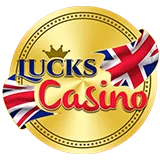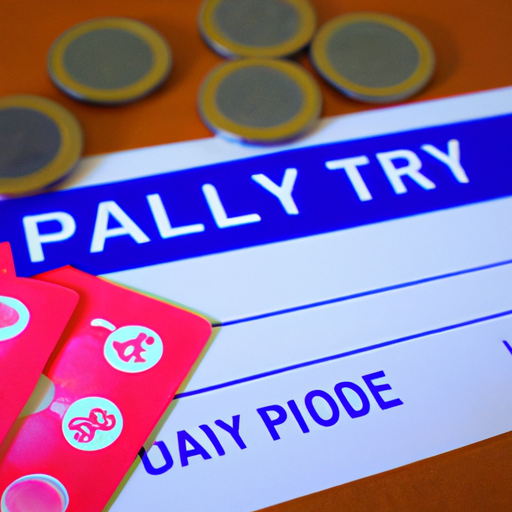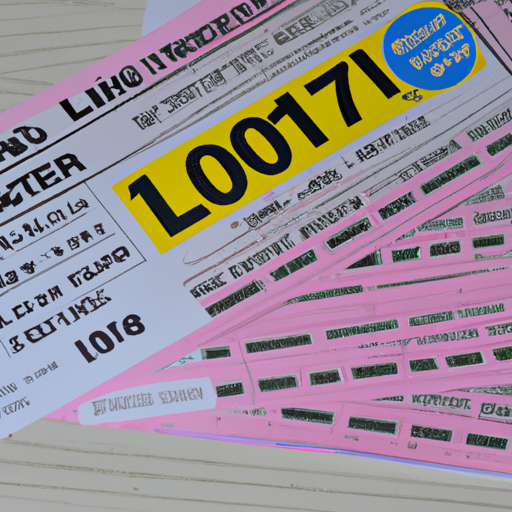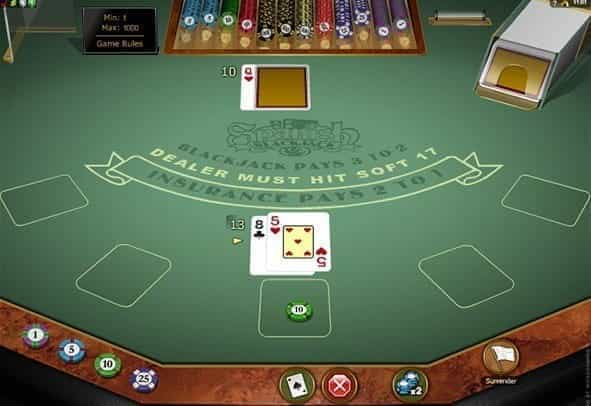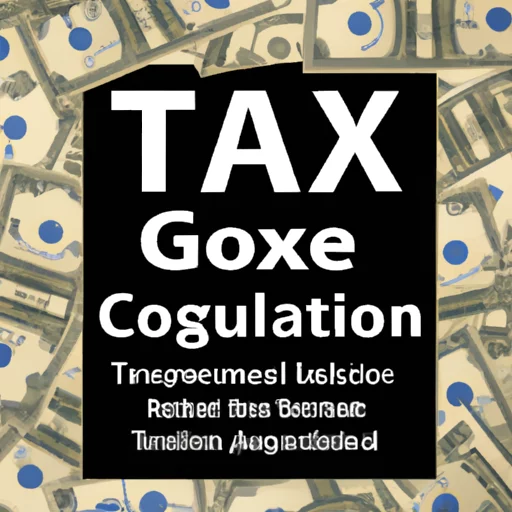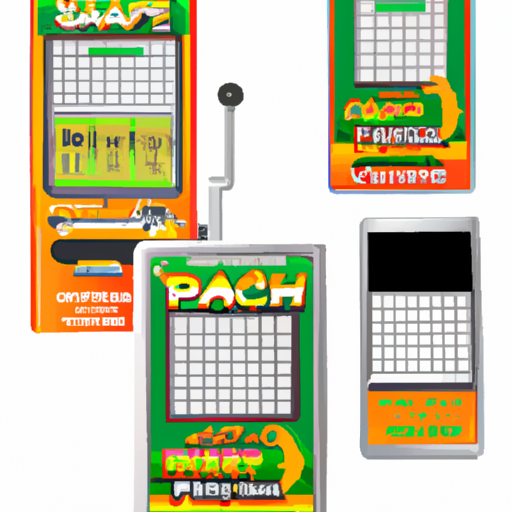 The Gorillawins Casino & Casino Phone Bill with www.Bovada, Phone Bill Deposit pages from CasinoPhoneBill.com
The Gorillawins Casino & Casino Phone Bill with www.Bovada, Phone Bill Deposit pages from CasinoPhoneBill.com
Lottery history prize breakdown UK
-
Casino Phone Bill Slots | Mobile Casino, Bets and Gambling Views
- Introduction
- The History of the National Lottery in the UK
- How the Prize Money is Split in UK Lotteries
- The Biggest Jackpots Ever Won in the UK
- How to Play the National Lottery in the UK
- How to Join a Syndicate to Increase Your Chances of Winning
- The Different Types of Lotteries Available in the UK
- The Benefits of Playing the Lottery in the UK
- How Camelot Has Changed the Way We Play Lottery Games
- What to Do if You Win a Lottery Prize in the UK
- The Tax Implications of Winning a Lottery Prize in the UK
- How to Protect Yourself from Lottery Scams in the UK
- The Impact of Lotteries on Local Communities in the UK
- Q&A
- Conclusion
“Uncovering the UK's Lottery History: Explore the Prize Breakdown!”
Introduction
The UK lottery has a long and interesting history, with the first draw taking place in 1994. Since then, the lottery has grown to become one of the most popular forms of gambling in the country. The lottery is operated by Camelot Group, who are responsible for the draw and the distribution of prizes. The prize breakdown for the UK lottery varies depending on the game, but generally consists of a jackpot prize, smaller cash prizes, and free tickets. In this article, we will take a look at the history of the UK lottery and its prize breakdown.
The History of the National Lottery in the UK
The National Lottery in the UK has been a part of British culture since its launch in 1994. The lottery was created by the government to raise money for good causes, and it has since become one of the most popular forms of gambling in the country.
The first draw took place on 19th November 1994, with a total prize fund of £5 million. Since then, the lottery has grown exponentially, with more than £30 billion raised for good causes across the UK.
The lottery is run by Camelot Group, who are responsible for setting the rules and regulations of the game. They also manage the ticket sales and draw process, as well as providing customer service and support.
The National Lottery has seen many changes over the years, with new games being introduced and existing ones being updated. The most popular game is Lotto, which is drawn twice a week and offers players the chance to win up to £10 million. Other games include EuroMillions, Thunderball, Set For Life and Instant Win games.
The National Lottery has had a huge impact on British society, with millions of people playing each week and billions of pounds being raised for good causes. It has become an integral part of British culture, and it looks set to remain so for many years to come.
How the Prize Money is Split in UK Lotteries
In the UK, the prize money for lotteries is split among different tiers of winners. The amount of money that each tier receives depends on the lottery game and the number of winners in each tier.
The first tier is usually the jackpot prize, which is won by matching all six numbers drawn in the lottery. This prize is usually a large sum of money, often millions of pounds. The second tier is usually for those who match five numbers plus the bonus ball. This prize is usually a smaller sum than the jackpot, but still a substantial amount.
The third tier is for those who match five numbers without the bonus ball. This prize is usually a smaller sum than the second tier, but still a significant amount. The fourth tier is for those who match four numbers plus the bonus ball. This prize is usually a smaller sum than the third tier, but still a significant amount.
The fifth tier is for those who match four numbers without the bonus ball. This prize is usually a smaller sum than the fourth tier, but still a significant amount. The sixth tier is for those who match three numbers plus the bonus ball. This prize is usually a smaller sum than the fifth tier, but still a significant amount.
The seventh tier is for those who match three numbers without the bonus ball. This prize is usually a smaller sum than the sixth tier, but still a significant amount. The eighth and final tier is for those who match two numbers plus the bonus ball. This prize is usually a smaller sum than the seventh tier, but still a significant amount.
In addition to these tiers, some lotteries also offer additional prizes such as raffle prizes or instant win prizes. These prizes are usually much smaller sums than those in the main tiers, but can still be quite substantial amounts of money.
The Biggest Jackpots Ever Won in the UK
The UK has seen some of the biggest jackpots ever won in the world. Here are some of the biggest jackpots ever won in the UK:
1. The National Lottery: On April 6th, 2020, an anonymous ticket holder from the UK won a staggering £170 million on the National Lottery. This is the biggest ever jackpot win in the UK and Europe.
2. EuroMillions: On October 8th, 2019, an anonymous ticket holder from Scotland won a whopping £170 million on the EuroMillions lottery. This is the second biggest ever jackpot win in the UK and Europe.
3. EuroMillions: On August 10th, 2012, an anonymous ticket holder from England won a massive £148 million on the EuroMillions lottery. This is the third biggest ever jackpot win in the UK and Europe.
4. Lotto: On January 9th, 2016, an anonymous ticket holder from Wales won a huge £61 million on the Lotto lottery. This is the fourth biggest ever jackpot win in the UK and Europe.
5. EuroMillions: On February 28th, 2014, an anonymous ticket holder from Northern Ireland won a gigantic £53 million on the EuroMillions lottery. This is the fifth biggest ever jackpot win in the UK and Europe.
How to Play the National Lottery in the UK
Playing the National Lottery in the UK is easy and straightforward. Here's how to get started:
1. Choose your game: The National Lottery offers a variety of games, including Lotto, EuroMillions, Thunderball, and Set For Life. Each game has its own rules and prizes.
2. Buy a ticket: You can buy tickets from any National Lottery retailer or online at the National Lottery website. Tickets cost £2 each and you can buy up to seven lines per draw.
3. Choose your numbers: For Lotto, you need to pick six numbers from 1 to 59. For EuroMillions, you need to pick five numbers from 1 to 50 and two Lucky Stars from 1 to 12. For Thunderball, you need to pick five numbers from 1 to 39 and one Thunderball number from 1 to 14. For Set For Life, you need to pick five main numbers from 1 to 47 and one Life Ball number from 1 to 10.
4. Check the draw results: Draws take place twice a week for Lotto and EuroMillions, once a week for Thunderball, and every day for Set For Life. You can check the results on the National Lottery website or app, or on TV or radio.
5. Claim your prize: If you match all the winning numbers, you'll win the jackpot! Prizes must be claimed within 180 days of the draw date. You can claim smaller prizes at any National Lottery retailer or online at the National Lottery website.
How to Join a Syndicate to Increase Your Chances of Winning
Joining a syndicate is a great way to increase your chances of winning the lottery. A syndicate is a group of people who pool their money together to buy multiple tickets, thus increasing their chances of winning. Here's how to join a syndicate:
1. Find a Syndicate: You can find syndicates online or through local lottery retailers. Look for a syndicate that has a good track record and that is run by an experienced organizer.
2. Understand the Rules: Make sure you understand the rules of the syndicate before joining. This includes how much money each member must contribute, how many tickets will be purchased, and how any winnings will be divided among members.
3. Join the Syndicate: Once you've found a syndicate that meets your needs, it's time to join. You'll need to provide your contact information and make your initial contribution.
4. Buy Tickets: The syndicate organizer will purchase tickets on behalf of the group and keep track of any winnings.
5. Collect Winnings: If the syndicate wins, the organizer will divide the winnings among members according to the rules of the syndicate.
By joining a syndicate, you can increase your chances of winning the lottery without having to buy multiple tickets yourself. Just make sure you understand the rules before joining and that you trust the organizer to manage the group responsibly.
The Different Types of Lotteries Available in the UK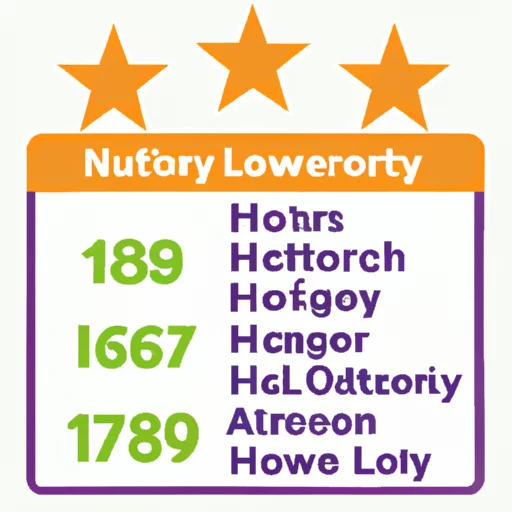
Lotteries are a popular form of gambling in the UK, with many different types available. Here is a breakdown of the different types of lotteries available in the UK.
The National Lottery is the most well-known lottery in the UK. It is run by Camelot and draws take place twice a week on Wednesdays and Saturdays. Players must pick six numbers from 1 to 59 and if all six numbers match those drawn, they win the jackpot. There are also smaller prizes for matching fewer numbers.
The Health Lottery is a lottery that supports health-related causes across the UK. It is run by Northern & Shell and draws take place five times a week on Monday, Tuesday, Wednesday, Thursday and Friday. Players must pick five numbers from 1 to 50 and if all five numbers match those drawn, they win the jackpot. There are also smaller prizes for matching fewer numbers.
The EuroMillions lottery is a pan-European lottery that is played in nine countries across Europe. It is run by Camelot and draws take place twice a week on Tuesdays and Fridays. Players must pick five numbers from 1 to 50 and two Lucky Stars from 1 to 12 and if all seven numbers match those drawn, they win the jackpot. There are also smaller prizes for matching fewer numbers.
The Thunderball lottery is a UK-only lottery that is run by Camelot and draws take place four times a week on Tuesday, Wednesday, Friday and Saturday. Players must pick five numbers from 1 to 39 and one Thunderball number from 1 to 14 and if all six numbers match those drawn, they win the jackpot. There are also smaller prizes for matching fewer numbers.
Finally, there are several other smaller lotteries available in the UK such as Lotto HotPicks, Dream Number, Set For Life and Daily Play. These lotteries have different rules and prize structures but generally involve picking numbers from a range of numbers and matching them with those drawn to win prizes.
Overall, there are many different types of lotteries available in the UK with varying rules and prize structures. Players should research each lottery before playing to ensure they understand how it works and what their chances of winning are.
The Benefits of Playing the Lottery in the UK
Playing the lottery in the UK can be a fun and exciting way to potentially win big. The National Lottery, which is run by Camelot, has been running since 1994 and has created over 5,000 millionaires. With jackpots reaching up to £170 million, it's no wonder why so many people choose to play the lottery.
The National Lottery offers a variety of games, including Lotto, EuroMillions, Thunderball, and Set For Life. Each game has different odds of winning and different prizes. Players can also choose to play online or through their local retailer.
Not only does playing the lottery offer the chance to win big prizes, but it also helps to support good causes in the UK. The National Lottery gives back 28% of its revenue to good causes such as health, education, environment, and heritage projects. This means that when you play the lottery, you are helping to make a difference in your community.
In addition to helping good causes, playing the lottery can also be a great way to have fun and socialize with friends and family. Many people enjoy playing the lottery together as it can be a great way to bond and share in the excitement of potentially winning big prizes.
Overall, playing the lottery in the UK can be a great way to have fun and potentially win big prizes while also helping to support good causes in your community. So why not give it a try?
How Camelot Has Changed the Way We Play Lottery Games
Since its launch in 1994, Camelot has revolutionized the way we play lottery games. As the official operator of the UK National Lottery, Camelot has introduced a number of innovative changes that have made playing the lottery easier and more enjoyable than ever before.
One of the most significant changes that Camelot has made is the introduction of online lottery games. Players can now purchase tickets online and check their results without ever having to leave their homes. This has made playing the lottery much more convenient and accessible for players.
Camelot has also introduced a number of new games to the UK National Lottery. These include scratch cards, instant win games, and syndicates. These new games have added an extra layer of excitement to playing the lottery and have made it more fun for players.
In addition, Camelot has also introduced a number of technological advances that have improved the overall experience of playing the lottery. For example, players can now use their mobile phones to purchase tickets and check their results. This has made playing the lottery even more convenient and accessible for players.
Finally, Camelot has also improved the way that players can claim their winnings. Players can now claim their winnings online or via direct bank transfer, making it much easier to access their winnings quickly and securely.
Overall, Camelot has completely changed the way we play lottery games. With its innovative changes and technological advances, Camelot has made playing the lottery easier, more convenient, and more enjoyable than ever before.
What to Do if You Win a Lottery Prize in the UK
If you are lucky enough to win a lottery prize in the UK, there are a few steps you should take to ensure that you receive your winnings.
First, you should sign the back of your ticket and keep it in a safe place. This will help to protect your winnings and ensure that no one else can claim them.
Second, contact the National Lottery operator Camelot to inform them of your win. You can do this by calling their helpline or visiting their website.
Third, you should decide whether you want to take a lump sum or an annuity payment. If you choose the lump sum option, you will receive your winnings in one payment. If you choose the annuity option, you will receive your winnings in instalments over a period of time.
Fourth, you should speak to a financial advisor or tax specialist to ensure that you are making the best decision for your financial future.
Finally, you should keep your winnings private and be aware of any potential scams. It is important to remember that Camelot will never ask for personal information or payment details over the phone or online.
By following these steps, you can ensure that you receive your lottery winnings safely and securely.
The Tax Implications of Winning a Lottery Prize in the UK
Winning a lottery prize in the UK can be a life-changing event, but it is important to be aware of the tax implications. All lottery prizes are subject to taxation, and the amount of tax payable will depend on the size of the prize and the individual's personal circumstances.
For prizes up to £500, no tax is payable. For prizes between £500 and £5,000, 20% tax is due. Prizes over £5,000 are subject to income tax at the individual's marginal rate. This means that if an individual is a basic rate taxpayer, they will pay 20% tax on any prize over £5,000. Higher rate taxpayers will pay 40%, and additional rate taxpayers will pay 45%.
In addition to income tax, any lottery winnings over £2,500 are also subject to National Insurance Contributions (NICs). The amount of NICs due depends on the individual's earnings for the year. For those earning less than £8,632 per year, no NICs are due. For those earning between £8,632 and £50,000 per year, 12% NICs are due on any winnings over £2,500. Those earning more than £50,000 per year will pay 2% NICs on any winnings over £2,500.
It is important to note that lottery winnings are not subject to Capital Gains Tax (CGT). This means that any profits made from investing lottery winnings are not taxable. However, any income generated from investments such as interest or dividends is subject to income tax at the individual's marginal rate.
Finally, it is important to remember that lottery winnings are treated as income for the purposes of means-tested benefits such as Universal Credit or Housing Benefit. This means that any lottery winnings may affect an individual's entitlement to these benefits. It is therefore important to seek advice from a financial advisor or accountant before claiming any lottery prize.
How to Protect Yourself from Lottery Scams in the UK
Lottery scams are a growing problem in the UK, with many people falling victim to them each year. It is important to be aware of the signs of a lottery scam and to take steps to protect yourself from becoming a victim.
The first step is to be aware of the common signs of a lottery scam. These include receiving an email or letter informing you that you have won a large sum of money in a lottery that you did not enter, or being asked to pay a fee in order to receive your winnings. If you receive any communication like this, it is likely to be a scam.
It is also important to be aware of the methods used by scammers. They may use high-pressure tactics to try and get you to part with your money, such as threatening legal action if you do not pay the fee. They may also use false identities and websites in order to appear legitimate.
If you are contacted by someone claiming that you have won a lottery, it is important not to give out any personal or financial information. Do not respond to any emails or letters and do not click on any links or attachments. If you are contacted by phone, hang up immediately.
You should also be aware that legitimate lotteries will never ask for payment in order to receive your winnings. If you are asked for payment, it is likely to be a scam.
Finally, it is important to remember that if something seems too good to be true, it probably is. If you are contacted about winning a large sum of money in a lottery, it is likely to be a scam and should be avoided.
The Impact of Lotteries on Local Communities in the UK
Lotteries have been a part of British culture for centuries, and their impact on local communities in the UK is undeniable. From providing much-needed funds for charities and good causes to creating jobs and stimulating the economy, lotteries have had a positive effect on many communities.
The National Lottery, which was launched in 1994, has been particularly beneficial to local communities. It has raised over £40 billion for good causes since its launch, with more than £30 billion of that going to projects in local communities. This money has been used to fund a wide range of projects, from sports facilities and parks to libraries and museums.
The National Lottery has also created thousands of jobs in the UK. According to the Gambling Commission, there are currently over 11,000 people employed in the lottery industry. These jobs range from sales staff to marketing professionals, and they provide an important source of income for many people.
Lotteries have also had a positive impact on the economy. The Gambling Commission estimates that the lottery industry contributes around £1.8 billion to the UK economy each year. This money is used to fund public services, such as healthcare and education, as well as providing much-needed funds for charities and good causes.
In addition to the economic benefits, lotteries have also had a positive effect on social cohesion in local communities. Many people view lotteries as a form of entertainment, and they can bring people together in a fun and social way. This can help to build relationships between people from different backgrounds and create a sense of community spirit.
Overall, it is clear that lotteries have had a positive impact on local communities in the UK. From providing funds for good causes to creating jobs and stimulating the economy, lotteries have had a significant effect on many communities across the country.
Q&A
1. How long has the UK Lottery been running?
The UK National Lottery was launched in November 1994.
2. What is the biggest ever UK Lottery jackpot?
The biggest ever UK Lottery jackpot was £170 million, won in January 2019.
3. How many numbers do you need to match to win the UK Lottery jackpot?
You need to match all six main numbers to win the UK Lottery jackpot.
4. What is the minimum amount you can win on the UK Lottery?
The minimum amount you can win on the UK Lottery is £25 for matching three main numbers.
5. How are the prizes for the UK Lottery distributed?
Prizes for the UK Lottery are distributed according to a fixed prize breakdown, with different amounts awarded for matching different numbers of main numbers and bonus balls.
6. What percentage of ticket sales goes to good causes?
28% of ticket sales from the UK Lottery goes to good causes, such as health, education, environment and heritage projects.
7. How much money has been raised for good causes by the UK Lottery?
Since its launch in 1994, the UK Lottery has raised over £40 billion for good causes.
8. What is the odds of winning the UK Lottery jackpot?
The odds of winning the UK Lottery jackpot are 1 in 45,057,474.
9. How much tax do you have to pay on lottery winnings in the UK?
Lottery winnings in the UK are tax-free.
10. Are there any age restrictions on playing the UK Lottery?
Yes, you must be 16 or over to play the UK Lottery.
11. Is it possible to buy tickets for the UK Lottery online?
Yes, it is possible to buy tickets for the UK Lottery online via authorised retailers.
12. Are there any other lotteries available in the UK?
Yes, there are a number of other lotteries available in the UK, including EuroMillions and Thunderball.
Conclusion
In conclusion, the history of lottery prize breakdowns in the UK has been a long and varied one. From the first lottery in 1569 to the modern National Lottery, the prize breakdowns have changed significantly over time. While the overall structure of the prize breakdowns has remained relatively consistent, the amounts of prizes and their distribution have varied greatly. This is reflective of the changing nature of lottery games and the ever-evolving preferences of players. As the lottery continues to evolve, so too will its prize breakdowns.



